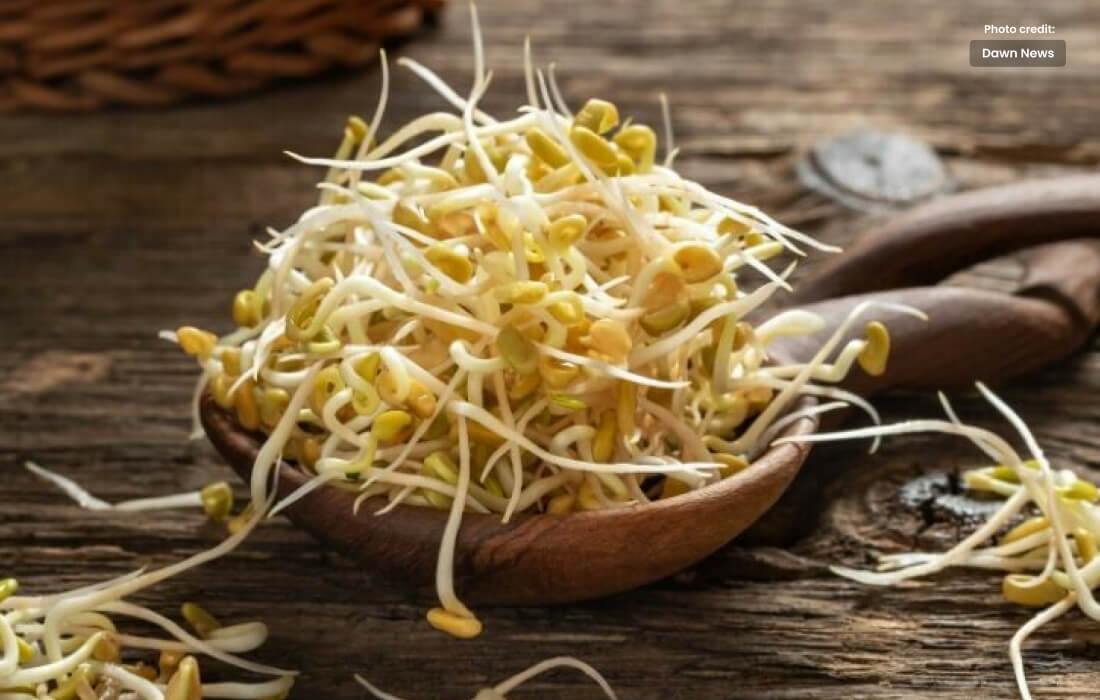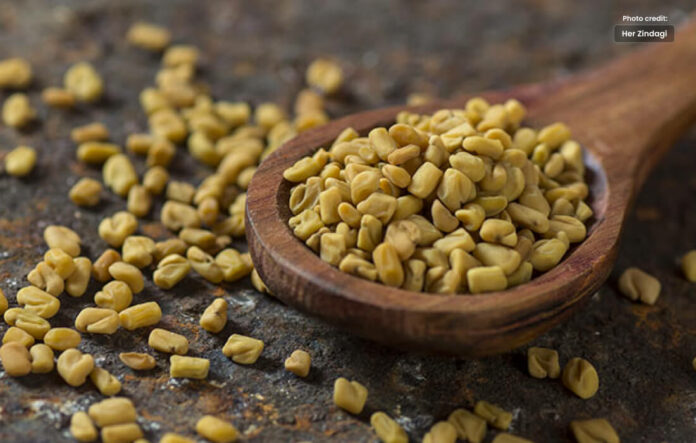Fenugreek seeds are very beneficial for our cuisine and our health.
Generally, both fenugreek leaves and seeds are eaten and their consumption is considered beneficial for people health of all ages.
Fenugreek seeds play a key role in adding flavor to curries, stews and other dishes. Fenugreek leaves are also cooked in potatoes, lentils or meat like spinach.
Although its seeds are hard, they can be eaten raw. Fenugreek sprouts are eaten by fitness conscious and weight loss seekers.
Many people eat sprouts early in the morning while also adding them to salads or soups. Many people make curry with it along with other vegetables.
The process of growing these sprouts is very simple. To germinate them, fenugreek seeds are first soaked in water overnight. I suggest washing these seeds thoroughly and putting them in a soft plastic cup.
Then, with the help of a fork, make many holes in the bottom of this cup. These seeds should be covered with tissue paper.
Due to this tissue paper, fenugreek seeds can get moisture which is essential for seed growth. Now keep this plastic cup in a cool and shady place for 3 to 6 days.
During this time, the plastic cup can be covered with a large plastic tub or other container, but it must be airtight. Some people believe that darkness is also beneficial in the growth of sprouts.
These seeds should be washed once or twice a day by pouring water in a cup and then drain the water with the help of the holes made in the plastic cup. This reduces the risk of seed spoilage and does not result in the growth of bad sprouts.

Sprout Growing Process
Apart from this, washing the seeds can also ensure that the seeds do not dry out during the entire process of sprouting. If you are growing sprouts for the first time, I suggest you use a soft plastic cup that is transparent.
This way you will be able to see the process of growth of seeds and transformation into sprouts in a better way.
Nutrient-rich sprouts are said to have positive health effects when consumed. Although research has proven few of these benefits, a large number of people still believe that sprouts are beneficial in treating various ailments. Fenugreek is one of the oldest and most widely used plants in traditional medicine.
Fenugreek seeds and sprouts are considered beneficial for balancing blood pressure and blood sugar levels, making it an important food for people suffering from metabolic diseases such as high blood pressure, hypertension and diabetes.
Traditionally, these seeds were used in dermatology, cosmetics and other skin care. Be it a problem with acne or long, black and shiny hair, fenugreek can be a solution to many skin problems.
Benefits
Consuming fenugreek seeds are also said to help in reducing labor pains (labor pain) and menstrual cramps. This makes it easier for women who breastfeed their babies.
While fenugreek seeds are also considered as an important food for increasing testosterone levels in men.
Weight and metabolic diseases can be controlled to a great extent by adding fenugreek sprouts in your diet in the morning for good health in light of the above mentioned benefits. Sprouts help curb appetite, reduce inflammation and improve overall immunity.
Finally, it is considered an important source of iron, magnesium, and manganese, as well as many other minerals and vitamins.
But be careful when adding any food to your daily diet, consult your doctor first, especially if you have a chronic health condition.
Gastrointestinal Health
Reducing Bloating and Indigestion
Bloating and dyspepsia have historically been treated with fenugreek seeds. Fenugreek’s soluble fiber aids in the formation of a gel-like substance that calms the digestive tract and facilitates digestion, relieving common stomach discomforts.
Handling Acid Reflux
Fenugreek seeds may help reduce the symptoms of acid reflux, according to research. Fenugreek seeds’ high mucilage content coats the stomach lining to lessen the symptoms of heartburn and acid reflux.
Heart Health
Reducing Cholesterol Amounts
Because of their capacity to reduce cholesterol, fenugreek seeds have been linked to better heart health. According to studies, fenugreek’s soluble fiber may help lower the intestinal absorption of cholesterol, promoting a healthier lipid profile.
Controlling Blood Pressure
Fenugreek seeds’ potassium concentration is crucial for preserving blood pressure levels within a normal range. Including fenugreek in your diet can help maintain appropriate blood pressure regulation, which can improve cardiovascular health overall.
Regulation of Blood Sugar
Handling Diabetes
The possible use of fenugreek seeds in the treatment of diabetes has drawn interest. Fenugreek may help decrease blood sugar and enhance insulin sensitivity, according to research.
Fenugreek may help those with diabetes or those who are at risk of getting the disease if they have a balanced diet.
Handling Blood Sugar Rises After Meals
Fenugreek seeds’ soluble fiber reduces the rate at which sugars are absorbed, averting sharp rises in blood sugar following meals.
This can be very helpful for people who want to efficiently control their blood sugar.
How to Include Fenugreek in Your Diet
Seeds of Fenugreek sprouting
Fenugreek seeds that have sprouted are a healthy garnish for salads and sandwiches. Sprouting gives your food a pleasant crunch and improves nutritional absorption.
Tea Made with Fenugreek
Savoring fenugreek tea is a calming method to capitalize on its advantages. All you need to do is steep a teaspoon of fenugreek seeds in hot water to make a cool, beneficial drink.
Uses in Cooking
A versatile spice used in many different cuisines is fenugreek seeds. They give spice blends, stews, and curries a unique flavor. Try experimenting with fenugreek in your recipes to improve flavor and nutritional value.
Also read this: The Unique Benefits and Harms of Chocolate




